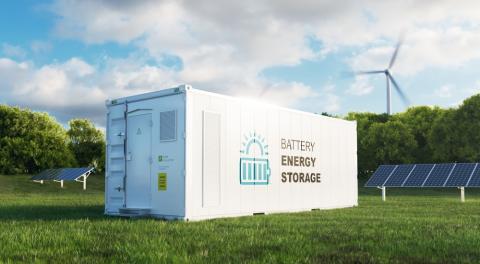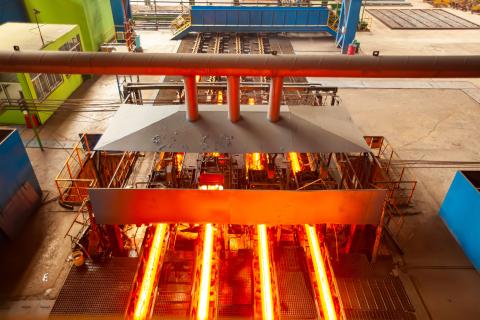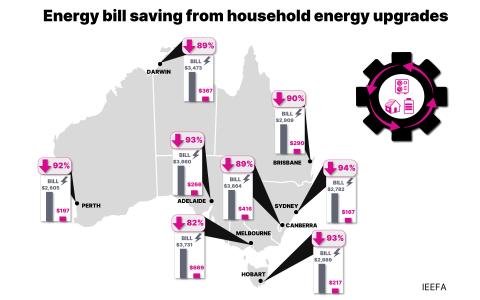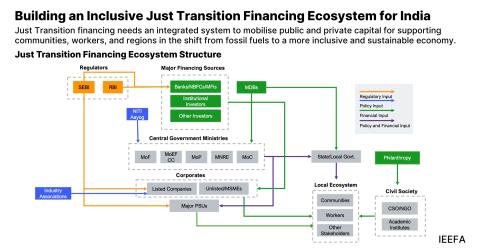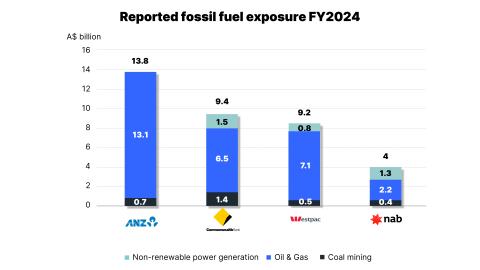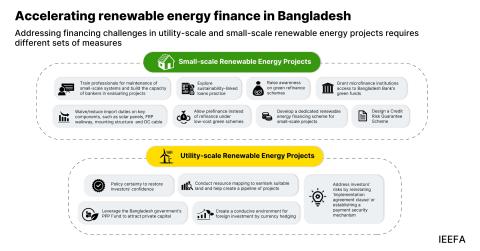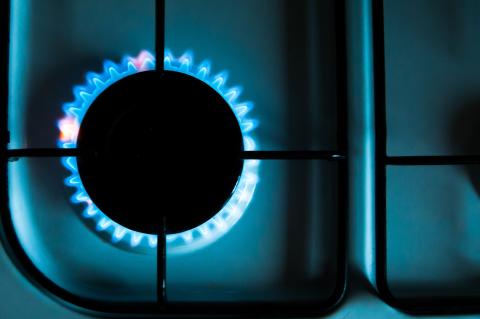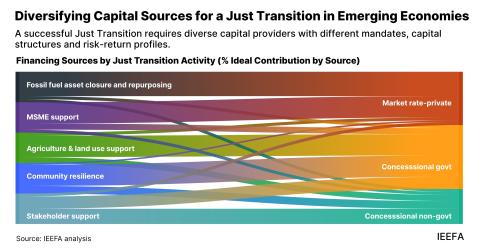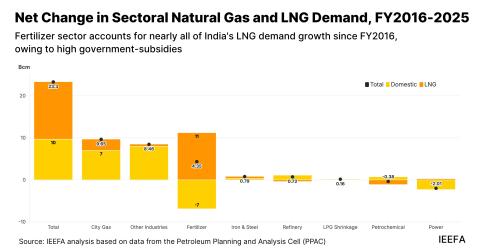IEEFA update: Tech giants’ investment in renewable power purchase agreements pays off in current climate
25 March 2020 (IEEFA Australia): A new IEEFA briefing note out today finds the largest tech giants have all committed to renewable energy targets and are increasingly taking up renewable power purchase agreements, a move putting them in good stead in the current climate.
This has been against a backdrop of inaction, stalling or backtracking on energy policies
Author of the note Clark Butler says major technology companies that have been investing in renewable energy for some time are facing their next boom, while major fossil fuel companies are experiencing huge drops in market capitalization due to the oil price bottoming out, the spreading covid-19 pandemic, and the consequential share market slide.
“Global tech giants, corporates and financial institutions have been setting decarbonisation targets, working towards the Task Force on Climate-related Financial Disclosures (TCFD), and increasingly taking up renewable power purchase agreements (PPAs),” says Butler.
“This has been against a backdrop of inaction, stalling or backtracking on energy policies by governments and little real movement by the fossil fuel sector.
“CORPORATES REALISED EARLY THAT INVESTING IN RENEWABLE PPA’S makes good business sense.”
Some 10% of new solar and wind generation projects in the U.S. are now directly supported by corporate PPAs
BloombergNEF notes a new record take-up of corporate renewable PPAs in the U.S. last year, with 13.6 gigawatts (GW) of capacity contracted by U.S. companies under either PPAs or green tariffs.
In addition, 77 companies in the U.S. committed through RE100 to buying 100% renewable electricity. This compares to 10 companies in Australia, 31 in the United Kingdom, and 59 in the European Union.
“Purchasing 100% renewable PPAs has reduced carbon emissions across businesses while supporting necessary renewable energy investment,” says Clark.
“Some 10% of new solar and wind generation projects in the U.S. are now directly supported by corporate PPAs, with plenty of scope for significantly more.”
At the end of 2019 the fossil fuel energy sector commanded just 4.3% of the Standard & Poor’s 500 index (and probably just half this today in March 2020), down from 25% in the 1980s, when oil and gas companies represented seven of the top 10 companies. Today there are none, with big tech giants commanding half of the top ten spots.
“There has been a clear trend within the larger parts of the ICT sector to renewable PPAs and direct investment in renewable energy projects,” says Butler.
“AS THE PANDEMIC CONTINUES AND OIL AND STOCKS CONTINUE TO SUFFER SHOCKS, investment in renewable energy projects is now the way forward.”
Investment in renewable energy projects is now the way forward.
Google’s portfolio of renewable energy rose 43% in 2019 alone and has been 100% renewable since 2017. Apple achieved 100% renewable energy in 2018, and is planning to buy “green aluminium” from Elysis, a joint venture between Rio Tinto and Alcoa. And Amazon has invested in utility-scale wind and solar energy projects in the U.S and around the world.
Facebook is on track to hit its 2020 target of 100% renewable energy as a result of large PPAs for wind and solar, while Microsoft is already 100% renewable. IBM and HP Enterprise have committed to 55% renewable energy by 2025, and Accenture has committed to 100% renewable by 2023.
Butler found the largest tech players – Amazon, Apple, Facebook, Google and Microsoft – are taking significant steps to migrate hyperscale data centres to renewable energy, which will improve electricity efficiency across the corporate sector as the world transitions out of the pandemic. These tech firms are also increasingly working with their key counterparts to green their global supply chains.
Unfortunately, many of those banks are still funding the fossil fuel industry
“THE MORE ELECTRICITY-INTENSIVE AN INDUSTRY, THE LARGER THE FINANCIAL SAVINGS,” says Butler.
Butler also found nine of the ten largest banks in the U.S. have committed to 100% renewable energy in their operations, and three are already there.
“Unfortunately, many of those banks are still funding the fossil fuel industry. While their commitments to financing renewable energy and energy efficiency are growing, there is a long way to go for real alignment with the Paris Agreement,” says Butler.
“Notwithstanding that companies may continue to operate in ways that add to greenhouse gas emissions, the corporate take-up of renewable energy is a positive step and should be encouraged.
“In the absence of global cooperation and governments responding to emission reduction targets as set out in the Paris Agreement, the private sector can do a good job of reducing emissions through the uptake of corporate PPAs.
“Governments should do more, but the least they can do is get out of the way of the private sector,” says Butler.
Read the briefing note: Tech Giants’ Investments in Renewable Power Purchase Agreements Lead the Way
Media contact: Kate Finlayson ([email protected]) +61 418 254 237
Author contact: Clark Butler ([email protected])
About IEEFA: The Institute for Energy Economics and Financial Analysis (IEEFA) conducts research and analyses on financial and economic issues related to energy and the environment. The Institute’s mission is to accelerate the transition to a diverse, sustainable and profitable energy economy. (www.ieefa.org)

